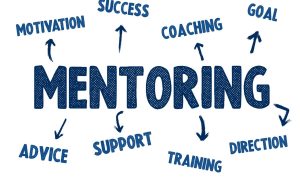Stress is not just a feeling; it’s a full-body experience. When left unchecked, it chips away at your mental health. Every ping from your phone, every deadline looming, every tough conversation with a boss or partner—it all stacks up. For some people, stress acts like fuel, pushing them to perform. For others, it spirals into burnout, anxiety, or even depression. Understanding why stress impacts your mental health is the first step in regaining control.
The Brain on Stress
Your brain is the command center for handling stress. When you sense a threat—real or imagined—the amygdala fires off signals. This sets off a chain reaction, pulling the hypothalamus into play, which triggers the adrenal glands. Suddenly, cortisol and adrenaline flood your body. In the short term, this “fight or flight” response helps you power through. Over time, though, repeated exposure wears down brain regions like the hippocampus, which is crucial for memory, and the prefrontal cortex, which handles decision-making. Studies from Harvard Medical School show chronic stress shrinks gray matter in these areas, which may explain why you forget names during stressful weeks.
The Body’s Response

Your body never experiences stress in isolation. Elevated cortisol doesn’t just keep you alert—it spikes blood pressure, suppresses your immune system, and even alters digestion. That’s why stomachaches and stress often arrive hand in hand. The American Psychological Association reports that nearly 77% of people experience physical symptoms of stress regularly. Think about your last tough day: did your shoulders tighten? Did your heartbeat race? Those are not random events—they are biological alarms. Over months or years, the constant pressure increases risks for heart disease, diabetes, and chronic inflammation.
Beyond Biology
Stress isn’t just chemicals firing inside you. It’s also shaped by culture, environment, and personal history. A college student facing finals may feel crushed by pressure, while an entrepreneur may thrive under similar strain. Past trauma, financial instability, or lack of support systems make stress more harmful. In Japan, they coined the term karoshi—death by overwork—to describe the extreme social impact of stress. Meanwhile, Scandinavian countries with shorter workweeks and better social safety nets show lower stress-related mental health issues. Stress is not universal; context makes it heavier or lighter.
Recognizing the Signs
One challenge is that stress sneaks up quietly. Irritability may become your new normal. Sleep might become lighter, leaving you tired even after eight hours. Appetite shifts—some people overeat, others can’t stomach food. Emotional signs can be subtle: snapping at a loved one, feeling disconnected from hobbies you once loved, or struggling to focus at work. The World Health Organization estimates over 301 million people worldwide suffer from anxiety disorders, often triggered or worsened by chronic stress. Recognizing these early signals is crucial to avoid long-term damage.
Building Resilience
Resilience isn’t about avoiding stress; it’s about adapting to it. People who bounce back tend to reframe challenges as opportunities. Athletes often use stress as adrenaline fuel to sharpen focus. Leaders train themselves to pause, breathe, and assess before reacting. Building resilience starts with small habits: journaling for perspective, practicing gratitude, or even intentionally exposing yourself to manageable stress (think cold showers or timed challenges). These micro-challenges train your body and mind to recover faster when life throws curveballs.
Lifestyle Foundations
Resilience also rests on lifestyle choices. Sleep, exercise, and diet are the holy trinity of stress management. A 2022 study from Stanford showed aerobic exercise reduced cortisol levels significantly within weeks. Sleep repairs your brain’s “wiring,” flushing out toxic byproducts accumulated during stressful days. Nutrition matters, too. Diets rich in omega-3 fatty acids and whole grains support better emotional regulation. Caffeine or alcohol, on the other hand, can exaggerate stress responses. Ask yourself: are your daily habits working for you—or against you?
Is it stress or anxiety?
This is where people get confused. Stress is usually a reaction to an external trigger: a deadline, an exam, a fight with your partner. Anxiety lingers even without a clear cause. It’s like a smoke alarm that keeps going off when there’s no fire. Stress may fade once the problem passes, while anxiety stays rooted in the mind. If you feel tense long after the event is over, that’s a sign you might be dealing with anxiety rather than stress.
What are the symptoms of stress?
Stress symptoms can be physical, emotional, or behavioral. Physically, headaches, chest pain, and muscle tension top the list. Emotionally, you may feel overwhelmed, moody, or restless. Behaviorally, it can show up in procrastination, increased use of alcohol, or pulling away from social activities. Real-world surveys consistently confirm these patterns. In 2023, the American Institute of Stress reported that 33% of people said they felt extreme stress, often leading to sleep disruption and irritability. These are not random quirks—they are part of the body’s stress response.
How to get rid of mental stress?

You can’t eliminate stress, but you can manage it. Deep breathing techniques, mindfulness practices, and physical activity all lower cortisol. Social support is equally powerful. Talking to a friend often helps reframe a situation, reminding you that you’re not alone. Another overlooked solution is boundaries. Turning off email notifications after work or saying “no” to an extra project protects your energy. Therapy also plays a huge role. Cognitive-behavioral therapy, for example, helps rewire thought patterns that fuel stress. It’s not about erasing challenges; it’s about building strategies that keep stress from taking over your mental health.
Why does everything stress me out?
If everything seems stressful, it may be because your “stress bucket” is already full. Each new worry overflows it. Lack of recovery time between stressors makes even small issues feel massive. This is why people break down over minor inconveniences after weeks of pressure. Sometimes it’s about perspective—perfectionists, for instance, often find fault in every detail, amplifying stress. Other times, it’s burnout, a state where your mind and body are so drained that all demands feel unbearable. Recognizing this pattern is key, because it’s not that everything is stressful—it’s that you haven’t had the space to recover.
Conclusion
Stress impacts your mental health because it touches every system in your body and mind. From memory loss to muscle tension, from sleepless nights to anxiety spirals, the effects are real and far-reaching. But it doesn’t have to control you. By recognizing the signs, strengthening resilience, and making lifestyle adjustments, you can turn stress into a signal instead of a sentence. Remember, the goal isn’t a stress-free life—it’s a balanced one.
FAQs
Chronic stress increases risks of anxiety disorders, depression, heart disease, and weakened immunity.
Yes. Short-term stress can boost focus, memory, and performance. The key is recovery afterward.
Some stress is unavoidable and even necessary. It becomes unhealthy when it is constant or overwhelming.
Studies consistently show that mindfulness and meditation reduce cortisol levels and improve emotional regulation.
If stress interferes with daily life, relationships, or physical health, it’s time to consult a mental health expert.





